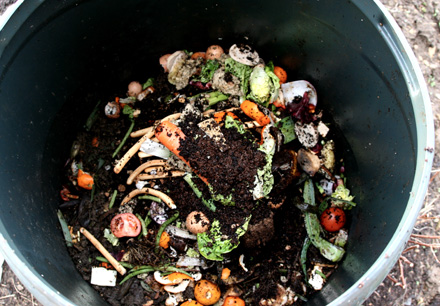
Recycling is a big part of being environmentally friendly. There are many different ways to recycle. Composting is organic matter that has been decomposed and recycled as a fertilizer and a soil amendment. Compost can be beneficial in many ways. It works as a soil conditioner, fertilizer, pesticide, and recycles certain wastes rather than being sent to a landfill.
Creating your own compost is both easy and beneficial. It requires making a heap of wetted organic material. To start, you can make a hole in the soil in your backyard or garden. Lay twigs or straw on the bottom to aerate the compost. Make sure to keep your compost moist and turn every couple of days.
Before venturing on your composting rampage, be sure to be aware of what can and cannot be composted.
What can be composted:
• Coffee grinds & filters
• Fruit and vegetables
• Egg shells
• Grass clippings
• Leaves
• Nut shells
• Shredded newspapers
• Fireplace ashes
What cannot be composted:
• Meat or fish bones
• Yard trimmings that have been treated with chemicals
• Pet waste
Be smart with your waste. Composting is a great way to use your organic waste to your greatest advantage. It not only reduces the trash in your house but also the trash in our landfills. Its nutrients help plants grow and flourish on our planet. The Earth is precious! As citizens of this planet, it is our duty to ensure that our existence benefits and helps it- instead of destroying it.
